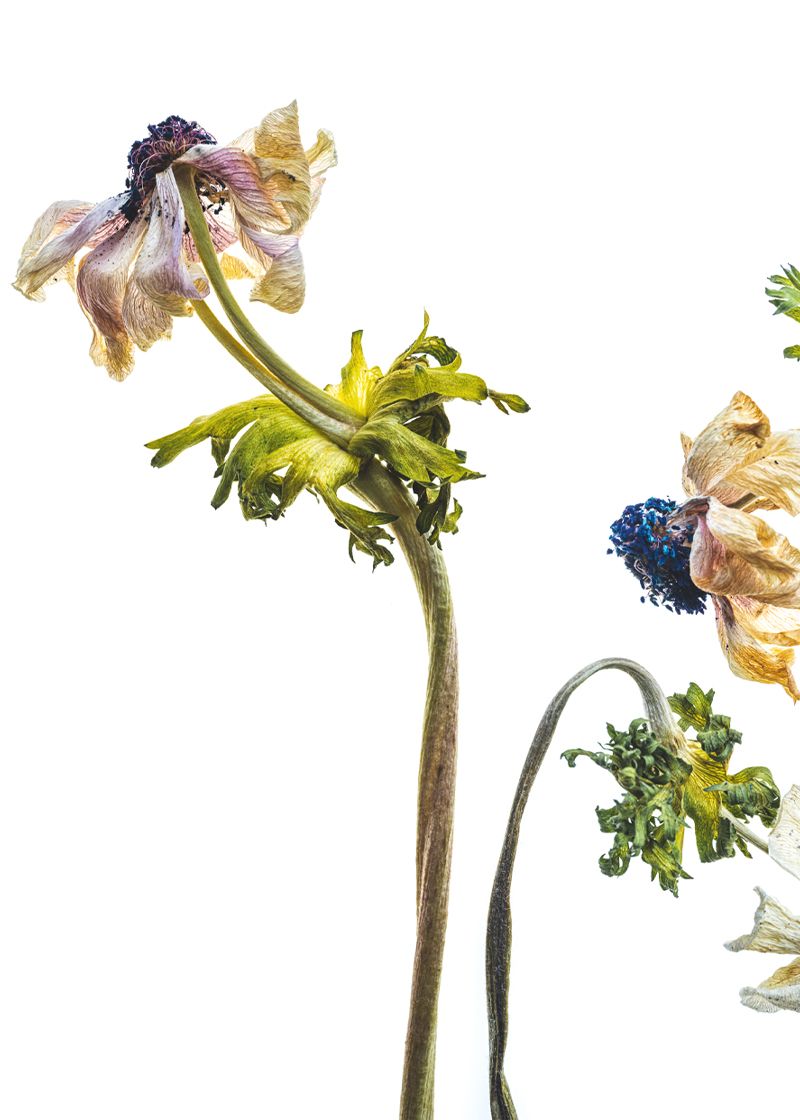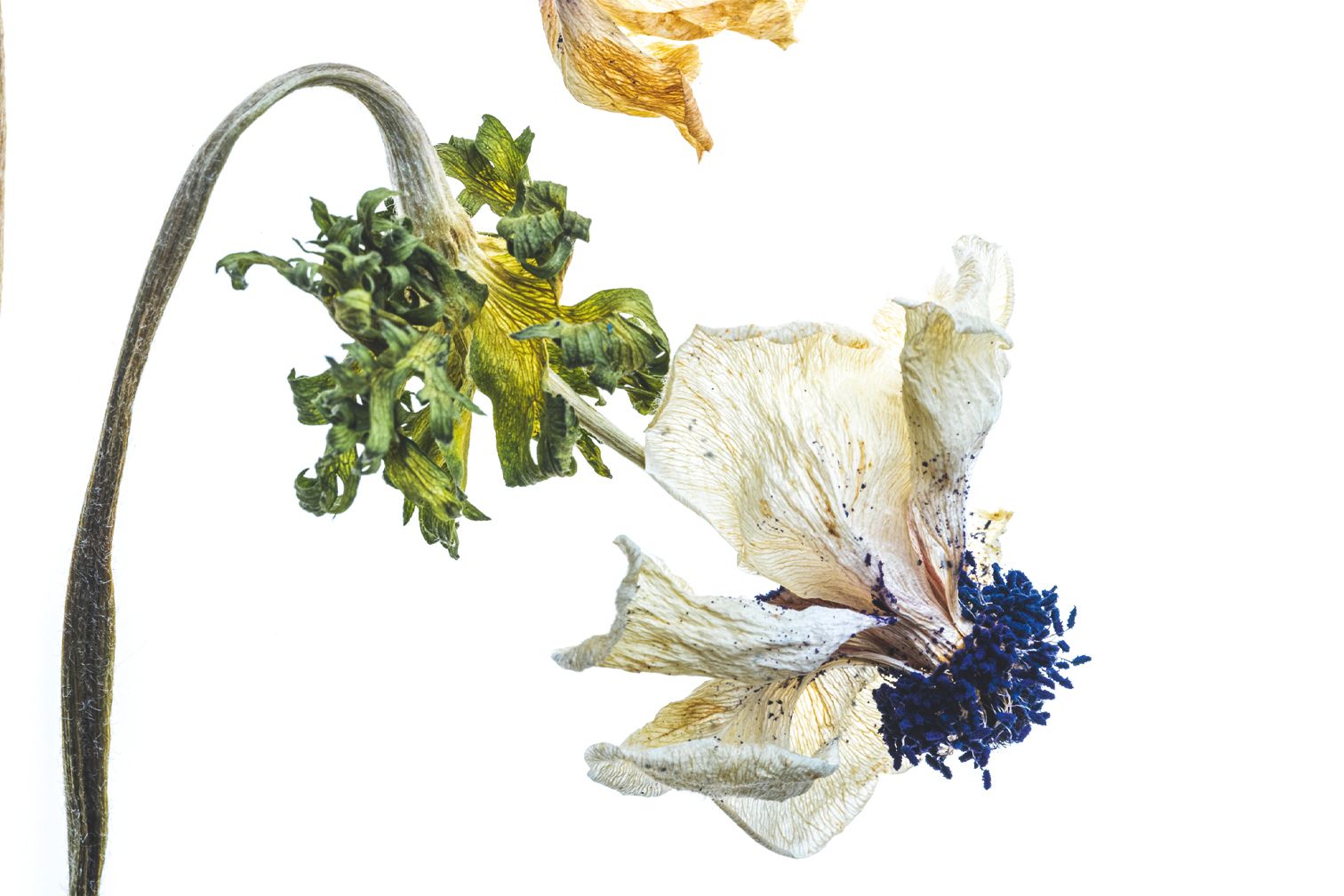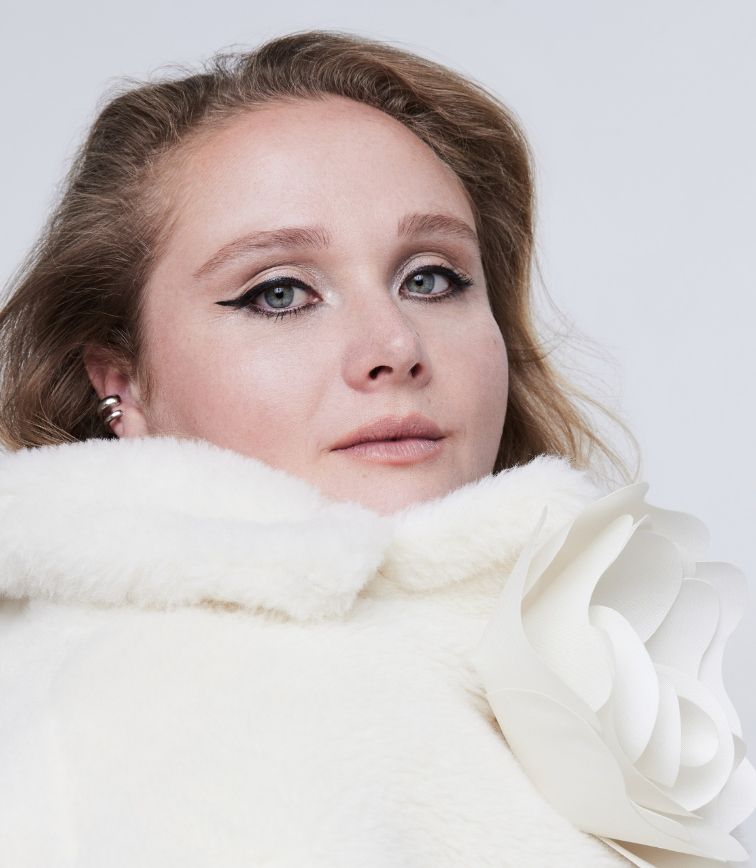
If I could push back time...
Life is short, but maybe it doesn't have to be? Maeve Galea gets to the bottom of our obsession with longevity
I ’m sitting on a Zoom call, and smiling back at me on the screen are two men with some of the whitest teeth I’ve ever seen. They are radiating good health and good vibes, wearing matching black baseball caps brandished with a logo featuring a large capital M on the front. The M stands for Manna Vitality, the duo’s ‘transformative wellness’ brand that has developed an all-in-one supplement that aims to restore the body’s electrical system to promote health and overall wellbeing. It’s essentially a longevity super supplement – the latest in a flurry of products to launch in the category.
In recent years, longevity has become the biggest buzzword in the $5.6 trillion global wellness industry, with everyone from Estée Lauder to billionaire-backed biotech companies attempting to slow, halt or even reverse the ageing process. It’s all a bit ironic to someone who grew up hearing that, thanks to the climate catastrophe, parts of the earth will be uninhabitable for humans by 2050. But what the hell, I hear Mars has its charms and I’ll try anything once.
My longevity journey began a week before the aforementioned interview, with some furious googling that, if this were a Netflix documentary, would have been cut up into a montage with a voice over saying, “For centuries, explorers have dreamt of a Fountain of Youth. But today, we might be closer to that reality than ever before.” Flashing headlines from The New York Times would be interspersed with shots of my fingers furiously striking the keyboard. A cursor on a screen would click play on a YouTube clip of billionaire Bryan Johnson – a redhead who looks suspiciously like someone from the Cullen family – proclaiming, with one hundred per cent earnestness, “This is how you don’t die.” It’s all extremely epic. Bryan Johnson is a good place to start. The tech tycoon turned biohacker – whose online payment platform Braintree was acquired by PayPal in 2013 for $800 million – is the most recent poster child for the pursuit of eternal youth. Self-branded as a professional rejuvenation athlete (to which you, like me, might ask: what the fuck does that mean?), Johnson has been making headlines in the past 12 months for his war against ageing.
I SPARE a thought for my colleagues’ dying tissue, while mine does its BENJAMIN BUTTON thing.
His medical team claims that, using a rigorous program called the Blueprint Protocol, they have effectively turned back the clock. Now 46-year-old Johnson apparently boasts the lungs of an 18-year-old, the skin of a 28-year-old, the heart of a 37-year-old, and – crucially – the nighttime erection rate of a teenage boy. And it all costs him just $2 million a year. Sure, his methods – which include using shockwave therapy to ‘rejuvenate’ his penis, taking 111 supplements a day, and swapping blood with his 17-year-old son – are unorthodox (and may make you wonder why you’d want to live for years longer if this is how you’ll be spending them). But Johnson’s glossy cupid’s bow, where there was once a smear of prickly stubble, doesn’t lie. So I make my way to Body WRL, a wellness, recovery and longevity studio in Sydney’s Rosebery that has many of the (more mainstream) devices that Johnson swears by.
I spend an afternoon being graciously attended to by the studio’s staff, who walk me through their low-lit, polished concrete space. They tell me someone recently said they sell prevention, and isn’t that the easiest way to sum it up? It’s no Clinique La Prairie – the Swiss medical spa on Lake Geneva that is almost mythical in its luxury longevity status – but they have many of the same devices that are included in the Clinique’s five-day detox reset program (which costs a cool $19,830) so I happily crawl into a pressurised chamber and breathe in 35 per cent more pristine oxygen as I answer emails smugly. I spare a thought for my colleagues’ dying tissue, while mine does its Benjamin Button thing. It feels less like a wellness treatment and more like being on a Sydney-to-Melbourne flight, down to the tray table and popping sensation in my ears, but if I close my eyes for long enough, the orange LED light I am bathed in could be the reflection of the sunset on Lake Geneva.

Next, I strip off and spend 15 minutes in a new-age solarium that’s actually a red light therapy bed from NovoThor, beloved by Olympic athletes and tech bros alike. “This is the longevity bed,” says Dee, who has been taking care of me. And she’s not wrong. Studies suggest that 15 minutes in these beds can stimulate collagen growth, decrease inflammation and even improve cognitive function. It can also make you feel like a steak sitting under a heat lamp at a pub, but I figure I’m still just adjusting to the feeling of my bare bum rubbing up against hot plastic. I round out the afternoon with a three-minute blitz in the cryo tank. Dressed in booty shorts, a sports bra, woollen gloves and socks up to my knees, I immerse myself in frozen air and for the first time that day, I do feel like I could live forever…but in more of a Walt Disney way than anything wellness-related. (According to a now-debunked myth, the Hollywood giant got swept up in the cryogenics craze of the 1960s and chose to be snap-frozen in the hope of future resurrection.)
When I leave, I don’t feel all that different, but then I remember the $90 I dropped on a two-week Pilates trial, and the fact that I don’t expect results after just one class, and decide I’m being unfair. It’s so easy to be a sceptic, isn’t it?
The next day I find myself sitting in a treatment chair sipping San Pellegrino through a paper straw. I’m here to see Dr Adam Brown, a British GP who has become one of Sydney’s leading anti-ageing cosmetic doctors. He’s recently launched his own Longevity Medicine program, inspired less by Bryan Johnson and more by the work of Stanford neuroscientist Andrew Huberman, bestselling author Dr Peter Attia (his book Outlive boasts fans including Hugh Jackman and Chris Hemsworth), and Harvard-based Australian biologist David Sinclair. They’re the Destiny’s Child of longevity medicine (the quite sexy Huberman has a popular podcast, Huberman Lab, making him the Beyoncé).
“Increasingly, ageing is considered a disease process which can be slowed with specific interventions,” explains Brown. “The current medical model is to only treat chronic diseases once they have developed, so you might treat blood pressure or diabetes, whereas this is basically about being a bit more proactive and preventative.” The way Brown and his team do this is through assessment (blood tests, genetic tests and physical examination) and then treatment, using supplements and prescribed medicines. In Brown’s parlance, it’s all about taking “a global approach to people’s health”. In my parlance it’s not necessarily about helping people live longer (although that is part of it), but instead, he wants them to live better for longer. When I ask him, he tells me that what I’m referring to is called “healthspan”: the length of time that the person is healthy – not just alive. I feel myself coming around to the idea of longevity, and it’s not just because, on my way home, my head is full of fear as I consider what my own twilight years might look like on Mars. I’m sure the lack of gravity will help with mobility.
I feel myself coming around to the idea of LONGEVITY
But I’m not the only one hedging my bets on the mission to cure ageing. In January, Estée Lauder launched a Longevity Collective to coincide with its latest Re-Nutriv face cream, which promises ‘visible age reversal’, and is now partnering with the Stanford Center on Longevity. In the same month, L’Oréal acquired a minority stake in Timeline, a Swiss longevity biotech company powered by Mitopure®, an anti-ageing super ingredient beloved by Elon’s mum, Maye Musk. Sally Obermeder’s sellout superfood and supplement range SWIISH has launched a Longevity Plus pack that promises to kickstart DNA repair for $119.95 a month. Even Bryan Johnson is trying to prove longevity is not just for the rich and powerful, converting his ‘protocol’ into a company that sells pill supplements, prepackaged meals and Blueprint branded olive oil to the masses. In conjunction with the rollout, Johnson announced a “self-experimentation study” in which participants can pay for a starter pack of Blueprint products, as well as bloodwork and other tests to track their results. The 90- day program costs $511 per month and the 2500 available slots filled up within 24 hours.
Which brings me back to my Zoom call with the Manna team. After some introductions, we start speaking about the ingredients that make Manna unique: Himalayan Shilajit and Dead Sea Ormus. They tell me the nutrients found in these substances (one from the earth’s highest altitudes, and the other from the deepest depths of the sea) contain all the elements and nutrients we are missing in modern diets. There’s an almost metaphysical vibe to the conversation, with mentions of ancient texts, consciousness, deeper truths and crystals. If you’re cynical about the possibility of finding the secret to longevity at the bottom of a sachet, there is research to suggest that mental and spiritual health have big impacts on our life spans. According to Dan Buettner (who discovered Earth’s ‘Blue Zones’ and parlayed his research into a hit Netflix series), people who pay attention to their spiritual side have lower rates of cardiovascular disease, depression, stress and suicide, and their immune systems seem to work better. An analysis by Oxford University psychiatrists has shown that serious mental illnesses reduce life expectancy by 10 to 20 years. Perhaps there is something in simply prioritising and placing a premium on our wellbeing – whether that’s sitting in an oxygen chamber, meditating or taking a supplement – that longevity products promote.
At dinner that night, my boyfriend’s dad — a 63-year-old dentist from Cairns — tells me he hopes to live until 130 and recently invested in a clinical-grade red light machine called the Infraredi Pro Max to help him achieve his goal. Then he tells me there are actually studies that suggest tooth loss is associated with inflammation, disease and a shorter life expectancy, and sends me home with a new toothbrush. All I can think about is the Manna boys’ pearly whites.

Danielle Macdonald is levelling up
The Australian actor is booked, busy and feeling blessed. By Courtney Thompson

Wild thing
A confection of dreamlike pastels and deepest black reveals the rebellious spirit of SS24 Louis Vuitton